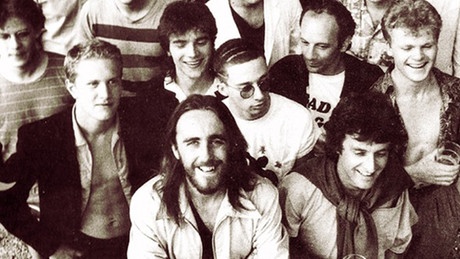That venerable tradition of liaison between jazz and ‘straight’ music was extended in late January when Loose Tubes, the ageing enfants terribles of the big band scene, appeared in tandem with the youthful Docklands Sinfonietta.
Before the Sinfonietta became, as waggish Tubes MC Ashley Slater had it, ‘our string section’, it gave a sterling performance on its own account. Vigorous readings of Stravinsky (Dumbarton Oaks), Lutoslawski (Venetian Games) and Diana Burrell (Landscape) provided models of virtuosity and sensitivity, and reflected the Sinfonietta’s commitment to a tart 20th century repertoire.
Loose Tubes’ view of contemporary music was, by comparison, profoundly consonant. Sustained rhythm section figures supported well-behaved solos (although trumpeter Paul Edmonds sprang a few surprises), and the whole was trimmed with typically wayward ensemble lines. In big band terms, Tubes’ writing remains among the most distinctive of recent years, but in many instances the addition of strings and woodwinds served to underline its relative conservatism; most of the orchestral scoring was routine and more than once suggested a homage to James Last. The welcome exception was Eddie Parker’s ambitious Tin Tin Goes To Hell, which showed a deeper understanding of the orchestra’s resources. Parker seemed to have written substantially for the Sinfonietta rather than simply embellishing existing Tubes charts.
At all events, this extraordinary evening bore the hallmarks of a Loose Tubes ‘happening’; and on the evidence of Parker’s work it was one which would bear early repetition.
Loose Tubes & The Docklands Sinfonietta at London Goldsmiths’ College, January 1990
















